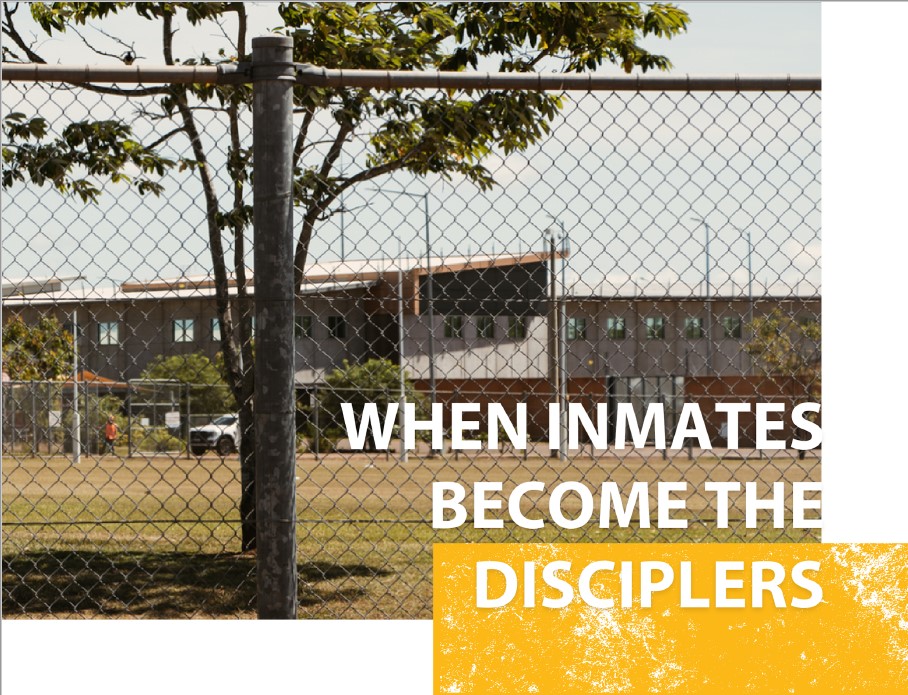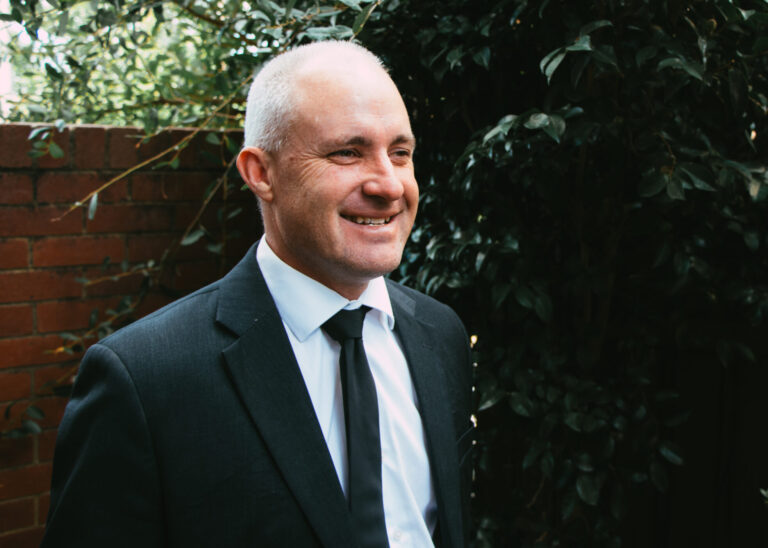
Most of the stories we share are about Prison Fellowship volunteers sharing the gospel with inmates and the transformation they experience whilst in prison.
But what happens when the inmates become the disciplers?
Lisa* has been working in prisons for 4 years as a Transition Coach and Mental Health Officer. But her life was transformed when some of her clients in prison shared their faith with her.
“I work with a community organisation that works alongside Correctional Services to integrate prisoners on parole.”
“We mostly work with high-risk prisoners, and work on goal-setting like finding accommodation or work for after their release, or supporting them to engage in pro-social behaviour. Basically just helping them in the transition towards release. I love it!”
Growing up in a Lutheran family, Lisa has always been involved in the church. But when her church failed to support her and her husband through a difficult period in their marriage, she found herself separated from her church family, and eventually from her husband as well.
Lisa ended up moving interstate and starting fresh. “I still had a strong desire to be in relationship with God and I tried to go to other churches but I would get very panicky. My church experience had been too traumatic and I ended up walking away from my faith completely for 10 years or more.”
“My church experience had been too traumatic and I ended up walking away from my faith completely for 10 years or more.”
“My experience meant I had a really bad perception of anyone who called themselves a Christian. Anytime someone said they were a Christian, I would leg it – I didn’t want a bar of it.”
“In those 10 years I tried Shamanism and all sorts of crazy things, but I always felt empty, hoping the next thing would be the problem-solver.”
At that time Lisa was working in prison as a Disability and Mental Health Officer. “I would mostly do intake meetings to see if they fit the criteria, but the guys eventually found out that I was just someone they could talk to. During COVID, there was a really high demand for just having a chat with someone because these guys wouldn’t fit the criteria to see the mental health nurse or the psychologist and they didn’t have any visitors, so I would spend time just talking with them.”
“I would ask them, ‘How are you coping in prison? What keeps you strong, what keeps you well so that we can do more of that?’ And there were a couple of guys who would say, ‘Oh it’s my faith.’”
“Whenever they said that I would seize up. I remember wanting to press the panic button and just get out of there. I would suggest other wellbeing activities like walking and enjoying nature, and they would just say ‘No, it’s just my faith that keeps me going.’”
“I got to a point where I thought, I just have to lean into this, I’m obviously struggling with this issue. I would read victim impact statements with no dramas, but the second they mentioned faith I would run a mile.”
“There was one guy who was doing it really tough. He was from overseas and didn’t have any contact with his family. One day he was really struggling, so I asked him what he would do back home. He said he would sing hymns in his choir back home. And all of a sudden I heard myself suggest to him that we sing a hymn together. I couldn’t believe what I was saying! But he started singing a hymn in his own language and I just thought to myself, ‘Just lean into this, there’s clearly a message here.’”
“I would ask them, ‘How are you coping in prison? What keeps you strong, what keeps you well so that we can do more of that?’ And there were a couple of guys who would say, ‘Oh it’s my faith.’”
“Another prisoner I met was probably the main instigator. He was referred to me because he was really struggling. I asked him what it was that kept him going and he told me about his faith. At the end of the session I was relieved because he didn’t end up fitting the criteria to continue our appointments.”
“But then one day he saw me in the yard and asked why I hadn’t made another appointment with him. I asked if he wanted more appointments and he was so enthusiastic. So again, I just told myself to lean into it because I’m here to support them.”
“During our conversations he told me about his faith and why it was so important to him. He was the first person who never made me feel judged or condemned. He didn’t use his faith as a way to judge or condemn people. He was just telling me his story and he was always accountable for what he had done. I ended up sharing my own story about my church experience, which I would normally never do because I don’t share any personal details, and we just had this beautiful dialogue. I just felt safe to have this conversation with him.”
“Because of these conversations, I kept thinking about going back to church. Eventually, I ended up visiting the church that had hurt me. I just wanted to go back and face them. It took a lot, but I walked in and sat there just observing the service. Then I had this overwhelming presence of God tell me I needed to forgive. So I sat there and forgave them. I sat through the whole service, just saying to myself, ‘I love them, I forgive what they’ve done. My life is bigger than this one experience – I’m on a journey and I just need to forgive these people.’”
“I then felt driven to go and find my own church. I did lots and lots of research and eventually found a little community church with only 30 people. It’s a sweet little community and I feel safe there – I know I’m in the right place. My son, who is 3 and is usually very shy around strangers, was going around talking to everyone at the end of the service! I knew that it was a safe place for us then.”
“Because of these conversations, I kept thinking about going back to church. Eventually, I ended up visiting the church that had hurt me. I just wanted to go back and face them.”
“After that, I left the prison system and went into teaching. I just felt that I needed to get out of prisons for a while. I started praying, asking for the right door to open. I ended up getting a job at a TAFE teaching mental health and community services. I had to tell all the prisoners that I was leaving, and I did not expect their response. The men were all crying and thanking me. On my last day, two inmates escorted me away from the prison to make sure I got away safely. That just made me bawl my eyes out! I just kept thinking, ‘Here are these people who are condemned by others, and they’ve always kept me safe.’ They are the people who have treated me with the most respect and care in life. They shared their stories with me and I’ve had so much respect for them.”
“This is what I’d like people to see about prisoners. I was bitter when I met them, but through my work with them they opened up my heart again.
“This is what I’d like people to see about prisoners. I was bitter when I met them, but through my work with them they opened up my heart again.”
I had intense grief when I left because I missed them all. When I started my new job at the TAFE, all I cared about was telling people about those prisoners. I love changing people’s perspective about inmates so I try to get people to love them and I encouraged my students to work with prisoners! At that point I realised that maybe God was calling me to go back to prison!
“So I ended up appyling for a job that had been closed for a month. But they called me up, I interviewed, and they gave me the job on the spot! I was so excited because it aligned with my beliefs about loving and forgiving people and giving people a second chance.”
“One of the guys I’m working with is getting released soon. He’s got accommodation and a license – he’s rebuilding. He’s even going to help me bake cookies for the Prison Fellowship Easter Biscuit Bake in Victoria! It may not sound like much, but for me it’s huge! I had been trying to think of a way for ex-prisoners to give back to the community – they’re never given a chance to give back and they’re so excited to do it. And in the end, it’s really not about the baking. It’s about giving hope to those who are still inside. The biscuits are going back into the prison I used to work at, to the guys who brought me back to Christ.”
*Name has been changed






